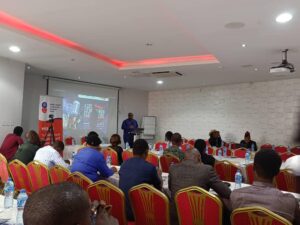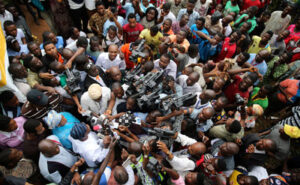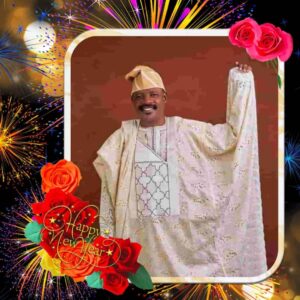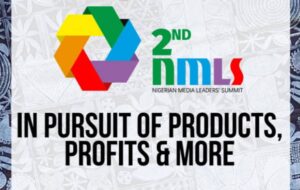Kimpact Development Initiative (KDI), a youth-focused non-governmental organization, has called on media personnel and journalists in Nigeria to promote women’s participation in the country’s politics.
KDI made this call at a one-day gender-sensitive reporting training for key media personnel, held at Grand Bee Hotel in Ikeja GRA, Lagos, to support women’s political participation.
The training, which was supported by Women Democracy Network, a women empowerment flagship initiative of the International Republic Institute, was tagged ‘Gender-Sensitive Reporting.’
Speaking at the event, KDI Team Lead, Bukola Idowu, expressed concern over the significant reduction in women’s involvement in Nigerian politics.
He revealed that the incoming National Assembly, set to be inaugurated in June under the new administration, is expected to have only three female senators, while there will be 14 female members in the House of Representatives.
While he noted that there has been a low representation of women in leadership since Nigeria’s return to democracy in 1999, he, however, noted that one of the strategies they (KDI) has implemented is a media partnership to explore how to leverage the media to increase women’s representation in leadership.
“So one of the things we look at is that women’s representation is low. And it has always been like that since we returned to democracy in 1999,“ he said.
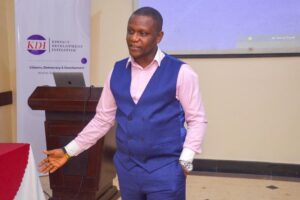
Idowu further explained that journalists have the resources to educate and inform members of society about the roles of women and the benefits of their inclusion in politics and governance.
He said journalists should create a balanced and fair playing ground in reporting for women to thrive in politics.
Analyzing the root causes and developing strategies to address the declining trend in women’s representation the KDI Team Lead said, “ I think it’s part of the cultural perspective, it’s part of the religious perspective and it’s also part of the stereotype we talked about. But if you ask me, one of the best ways to combat some of these stereotypes is by getting results.”
“We must start considering how to reorient people from cultural and religious perspectives, and the media can be a powerful instrument to achieve this. The Media is a powerful tool for reorientation, reengineering and education, making it a valuable tool for the task at hand. This is especially important since we find ourselves in a deep cultural hole, which is one of the key issues affecting us in Africa,” he reiterated.
Lekan Otufodunrin, Executive Director of Media Career Development Network, also highlighted the media’s role in gender representation.
According to him, “the media is as guilty as the politicians in terms of gender representation.” He added that how journalists report on women matters as the words used to describe or portray women politicians could make or mar them.
“To ensure fair representation of women in reporting, it is important to focus on their strengths and highlight their competence and suitability for the job, instead of perpetuating stereotypes that limit them to traditional roles in society, he said, adding that, “this approach reflects the principle of equity, as it gives women a voice and an opportunity to be heard in media reporting.”
Speaking further on how we can bridge the gender-sensitive reporting gap in Nigerian media, the Media Career Specialist said people need to see the bigger picture and understand the issue at hand. He however suggested that data should be used to advocate for women’s representation in politics and that the media needs to be intentional about highlighting the gap in representation.
Regarding the belief that women cannot lead in politics, Otufodunrin explained that this mentality is fading and needs to change. He noted that women are now more educated and accomplished than in the past and that this is reflected in their success as breadwinners, CEOs, professors, and politicians.
“Now even our women are more educated, so that mentality needs to change, and we must reflect that in the kind of people we elect. So it’s wrong for people to still hold on to that. Even in family life today, we used to say men are the breadwinners. We have women who are winning bread, who are taking care of the family so they can be. We have women who are CEOs, we have women who are professors who are accomplished. And we have women who have been in the House of Assembly, who have performed well.” He explained.
The training had attendees from both traditional and digital media who participated in interactive sessions to explore strategies for boosting women’s political participation.

